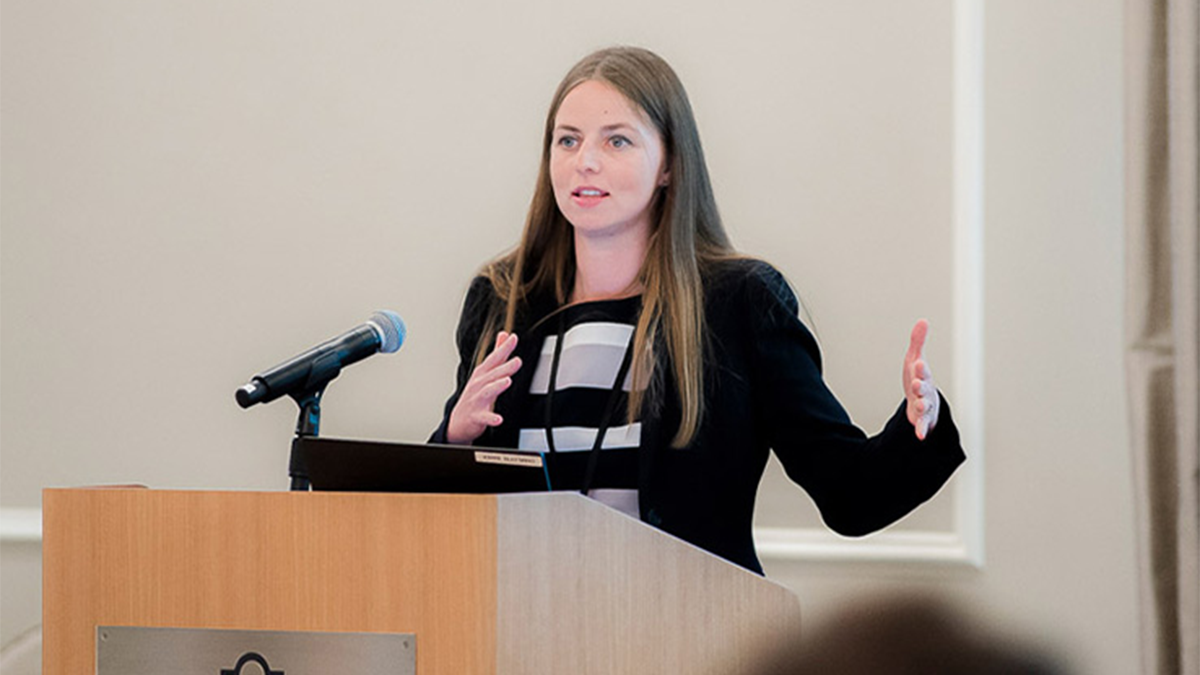READDI preps for next virus
The nonprofit’s “Ready on Day 1” symposium showcased antiviral drug research that could prevent another pandemic.

Imagine there had been a medication that could have stopped COVID-19 in its tracks.
Making that scenario a reality was the focus of the “Ready on Day 1” symposium hosted Sept. 20 by the Rapidly Emerging Antiviral Drug Development Initiative, a nonprofit biotechnology company based at UNC-Chapel Hill.
READDI develops broad-acting small molecule antiviral therapeutics — pills — to prevent severe illness, hospitalization and death. Critically, the company is doing so now, before the next novel virus emerges.
“It’s not about the sprint of response from the moment that we’re all panicking. It is about the marathon of preparedness before that day zero,” said speaker Charlotte Baker, deputy head of the G7-affiliated International Pandemic Preparedness Secretariat based in London.
Targeting virus families
READDI CEO Jimmy Rosen used a deck of cards to illustrate READDI’s innovative “broad-spectrum” antiviral approach. “If this deck of cards represents viruses, and each suit is a family of viruses, READDI is making drugs that work against the suits,” not individual numbered cards, Rosen explained. “We have to be ready with drugs for every suit in the deck […] because we don’t know what the next virus is going to be.”
READDI’s design principle allows scientists to target vulnerabilities among the shared inherited traits within virus families, said Carolina virologist Nat Moorman, READDI co-founder and scientific adviser.
Drug discovery work for five top virus families of pandemic concern is well underway, Moorman said, detailing progress on two promising compounds that target coronaviruses like the one that causes COVID-19.
‘It’s not a miracle. It’s science.’
The catastrophic consequences of getting caught off guard by a novel coronavirus was a recurring theme throughout the afternoon.
“We did not have therapeutics. We didn’t have vaccines. People were hiding in their houses,” said Dean Nancy Messonnier of the Gillings School of Global Public Health. She led the COVID-19 vaccine implementation program when she worked at the Centers for Disease Control and Prevention.
Any understanding of coronaviruses and how to combat them was thanks to long-term commitments made by hardworking scientists, like READDI’s co-founders, she said. “There’s this public perception that drugs, vaccines and diagnostics miraculously appeared in our hands. […] It’s not a miracle. It’s science.”
Global perspective
The IPPS’s Baker is a big proponent of oral medications — the kind of small molecule antivirals READDI is developing — because they can be shipped and stored without refrigeration wherever they are needed, including low- and middle-income countries in Africa, Southeast Asia and Latin America.
“Broad-spectrum small molecule antivirals that are easy to administer and, crucially, cheap to manufacture so that they’re affordable have the potential to be a game changer for equity,” she said.
Baker explained her organization’s focus on the 100 Days Mission, a plan endorsed by the G7 and G20 countries to make diagnostics, therapeutics and vaccines available within 100 days of a pandemic outbreak. Had they been available during COVID, “millions of lives and trillions of dollars would have been saved and health systems would have come under considerably less strain,” she said.
Once the COVID response began, vaccines received the “overwhelming majority of attention from policymakers and the public,” she said. For the sake of equity and effectiveness, the IPPS would like to see more investment in therapeutics. “We see access to small molecule broad-spectrum antivirals as an absolutely essential component of this marathon of preparedness that we are running at the moment.”







